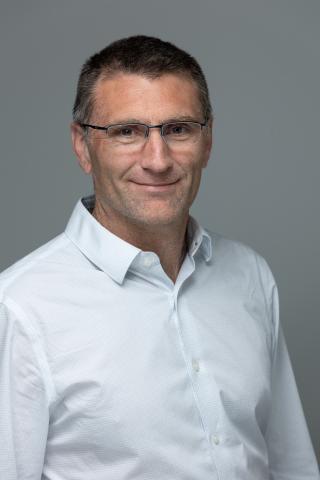
Palo Alto University Partners with ParenteAI to Revolutionize Child Behavioral Health Support

Dr. Eduardo Bunge
PALO ALTO, CA - Palo Alto University (PAU), a leader in behavioral health education, is proud to announce a groundbreaking licensing agreement with ParenteAI, developers of an AI Co-Therapist (PAT) for youth mental health professionals and parents. This collaboration marks a significant step forward in PAU's mission to improve lives through education and research anchored in psychology, clinical training, and practice. More importantly, this effort will help in providing solutions to the access-to-care-challenges in pediatric mental health by making therapists more efficient so they can provide more clinical services.
ParenteAI, co-founded by PAU's Dr. Eduardo Bunge, Stanford University's Dr. Antonio Hardan, and veteran Silicon Valley tech executive Juan Dellarroquelle, has created PAT to assist therapists and parents in managing children's behavioral and emotional challenges. This AI-powered tool aligns perfectly with PAU's vision as a leading force in behavioral science, emphasizing diversity and community impact.
Dr. Bunge, Professor in PAU's Department of Psychology and Director of the Master of Science in Psychology Program, states, "PAT represents the culmination of years of research and clinical experience in child psychology. By leveraging AI, we're able to provide accessible, evidence-based support to mental health professionals and parents worldwide, furthering PAU's commitment to innovation in behavioral health."
Dr. Bunge, who also directs the Children and Adolescents Psychotherapy and Technology Research Lab, brings a wealth of experience to this project. His extensive research and publications in the field underscore the scientific rigor behind PAT's development.
This partnership highlights PAU's dedication to remaining at the forefront of emerging trends in behavioral health. By supporting cutting-edge technologies like PAT, PAU continues to demonstrate its leadership in addressing critical societal needs through innovative solutions.
Dr. Patricia Zapf, Vice President of Business Innovation and Strategic Advancement at PAU, emphasizes the significance of this collaboration: "This licensing agreement with ParenteAI exemplifies PAU's commitment to fostering innovation and extending our impact beyond traditional academic boundaries. It's a testament to our faculty's expertise and our institution's ability to translate research into practical, life-changing applications."
The AI Co-Therapist PAT has the potential to benefit millions of parents and children globally, offering readily available guidance on child behavioral health. This initiative aligns with PAU's core values of compassion, integrity, and excellence, aiming to improve lives on a broader scale than ever before.
PAU invites media representatives to learn more about this groundbreaking partnership and its potential impact on child behavioral health. Dr. Bunge and other university spokespeople are available for interviews to discuss the development of PAT and its anticipated benefits for families worldwide.
For more information or to schedule an interview, please contact:
Troy Robinson
Director of Communications & Engagement
communications@paloaltou.edu
650-433-3838
About Palo Alto University:
Palo Alto University (PAU), a private, non-profit university located in the heart of Northern California’s Silicon Valley, is dedicated to addressing pressing and emerging issues in the fields of psychology and counseling that equitably meet the needs of today’s diverse society. PAU offers undergraduate and graduate programs that are led by faculty who make significant contributions to their field. Online, hybrid and residential program options are available. PAU's Continuing and Professional Studies Division offers a robust array of continuing education and professional development programming on mental health topics.
PAU was founded in 1975 as the Pacific Graduate School of Psychology and re-incorporated as Palo Alto University in August 2009. PAU is accredited by the Western Association of Schools and Colleges (WASC). PAU’s doctoral programs are accredited by the American Psychological Association (APA) and its master’s in counseling programs by the Council for Accreditation of Counseling & Related Educational Programs (CACREP).
